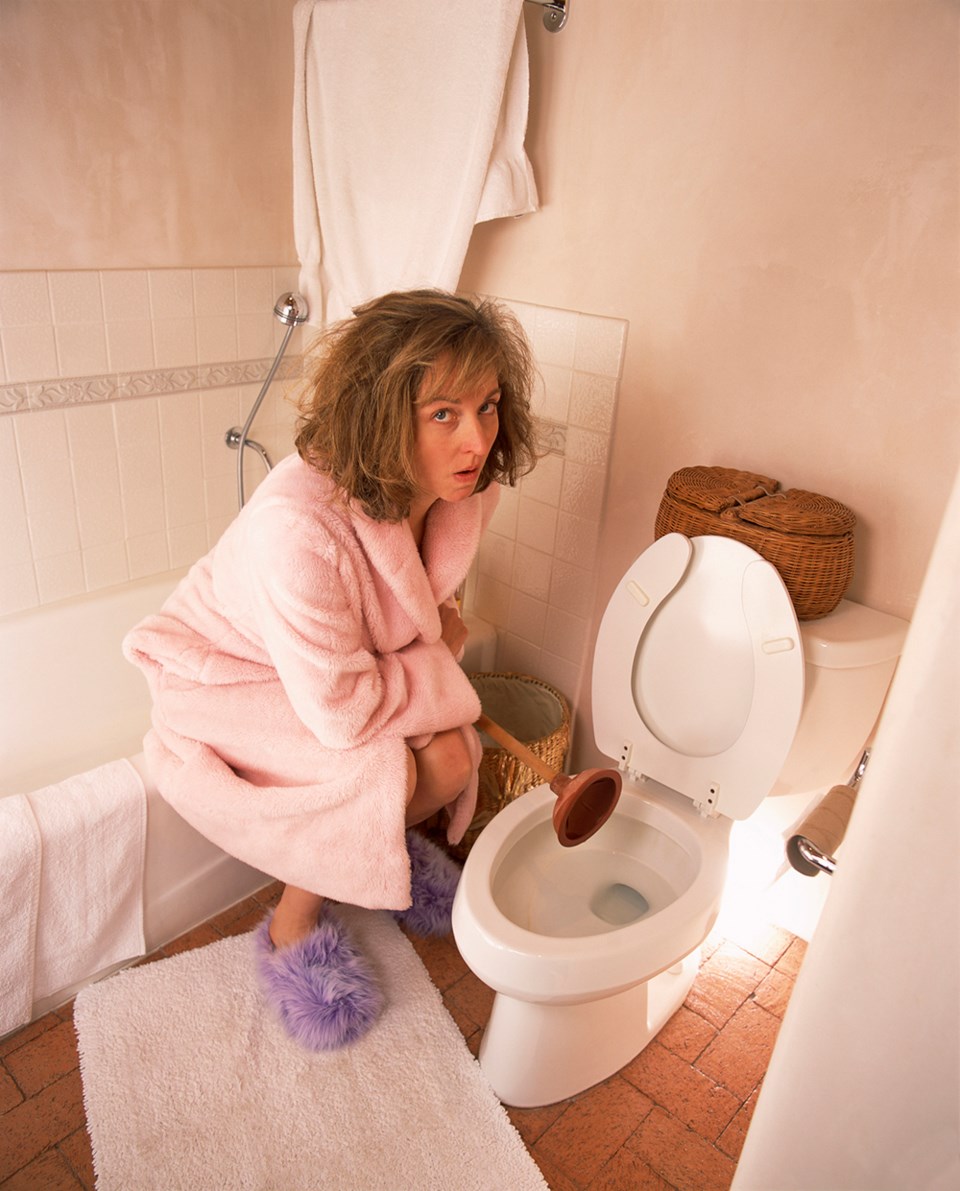We are peace- and ease-seeking creatures. Nothing to judge here, but knowing our nature keeps us honest.
Corporations know our preference for a streamlined life – and tap into it – selling us dreams rather than reality. Flushable wipes and compostable cutlery being but two.
Many products labelled flushable, are not. Producers get away with this on a technicality – single-use hand sanitizing wipes, baby wipes and dog poop bags may flush down a toilet, but they do not reliably break down in household or municipal pipes.
The idea of flushing the messiness of being human away has its appeal. It’s not surprising that we love quick fixes. What we might actually be buying into, though, especially with supposed flushables, is a plumbing bill.
Everything sent down the drain in the city is meant to make its way to a wastewater treatment plant. Anything other than human waste or toilet paper, however, results in pipe constipation.
When wet wipes meet hair, soap residue, tampons, dental floss and cooking grease, they are well on their way to creating a fatberg – a pipe-clogging blob. These nightmares of the sewer system are rarely seen by anyone but plumbers or municipal employees. Once experienced, however, they are impossible to forget.
While wastewater treatment plants do have primary filtration, secondary oxidation, and at times tertiary removal of some chemicals from wastewater, they are not designed to handle what we collectively throw at them.
A home’s pipes can be likened to the body’s intestinal tract. When it comes to septic fields in particular, having a healthy level of desirable bacteria is crucial to proper digestion in the soil. Large volumes of antibacterial soap, sanitizers, liquid soaps and chemical-laden cleaners kill the flora of our pipes, making breakdown of materials slow and sluggish.
Garbage disposals are becoming plumbing pariahs for good reason. Rather than sending food to marine life, they feed phytoplankton in waterways, creating blooms of algae which choke out sunlight resulting in ocean dead zones.
Wastewater treatment plants are not designed to manage large volumes of food scraps, and these are much better returned to the soil as compost. If you are unable to compost at home, food scraps are accepted in Town Centre Recycling Depot’s green organics bin.
Supposedly compostable plastics are problematic, too, in both the composting and recycling systems. Many compostable plastics do not reliably break down, even in high-heat composting facilities, let alone in backyard composters or septic fields. Appearing nearly identical to regular plastic, compostable plastics are also difficult for composting facility staff to distinguish. Plastic litter inevitably creeps into the soil through contaminated compost.
When it comes to marketing promises, if the labelling sounds too good to be true, it just might be.
Flushables and compostable plastics are generally destined for the garbage, but there are plenty of alternatives to choose from. Sprayable sanitizers, washable hand towels and reusable to-go ware keep us from needlessly taxing the earth and municipal systems.
Let’s Talk Trash is contracted by qathet Regional District to deliver its waste reduction education program. For more information, email [email protected] or go to LetsTalkTrash.ca.



